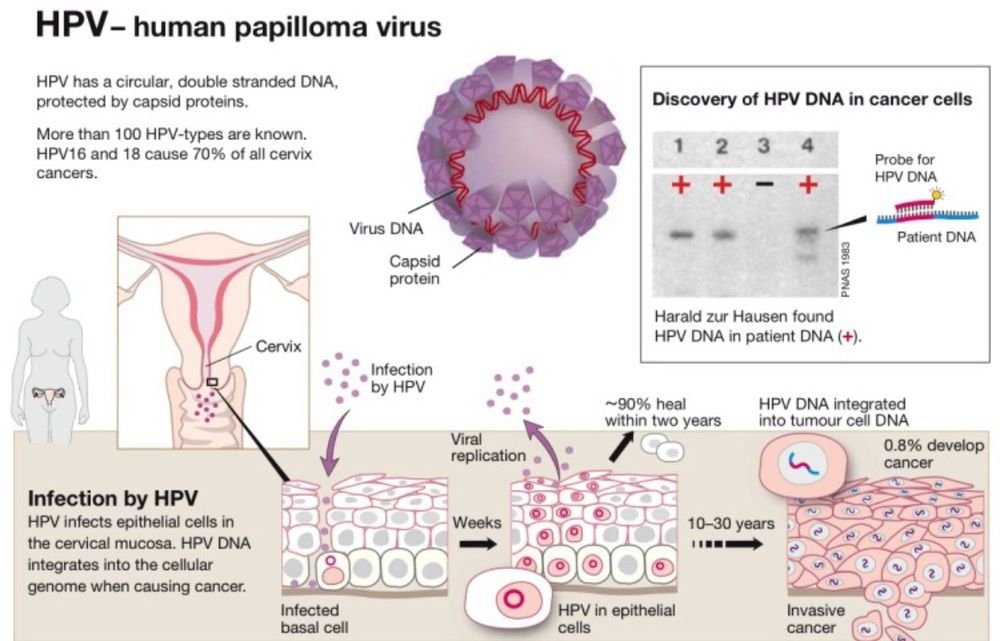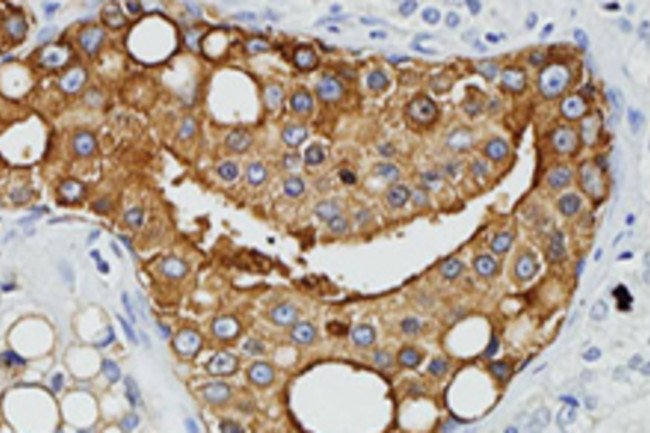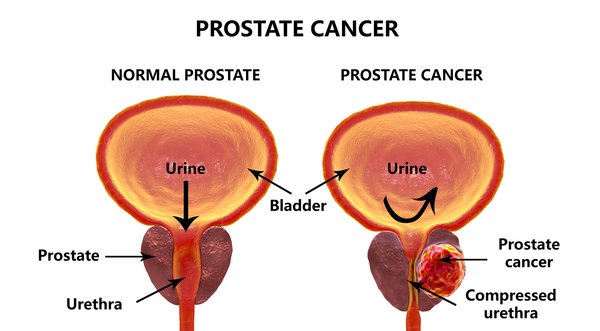Detecting Aggressive Prostate Cancer
Infection leads to inflammation, and inflammation has long been suspected of playing a leading role in the development and progression of prostate cancer.
Although previous studies examining other STDs have largely failed to show an association with prostate cancer, most did not have the long follow-up that the newly reported study did, American Cancer Society director of prostate cancer Durado Brooks, MD, MPH, tells WebMD.
We can say from this study that there may be a link between this sexually transmitted infection and more aggressive prostate cancer, but more research is needed to confirm this, he says.
If the link is confirmed, the finding could offer much needed insight into which prostate cancers will become deadly and which will not, he says.
The introduction of prostate-specific antigen testing in the late 1980s led to a doubling in the number of prostate cancers diagnosed annually.
It has become clear in recent years that many of the cancers found with PSA testing are not likely to progress, but determining which patients need aggressive treatment and which do not remains a problem.
We need more markers to tell us at the time of diagnosis how aggressive a cancer will be, Brooks says.
Precautions To Prevent Spread Of Infections Associated With Cancer
HPV can be transmitted sexually and hepatitis B and C, as well as HIV, can be transmitted sexually as well as through contact with blood. Hepatitis B is spread much more easily than HIV, and even sharing a toothbrush could lead to transmission.
Safe sex includes the use of condoms and more. Blood precautions are important with hepatitis B, C, and HIV. With hepatitis B, immunization is the best way to prevent the disease.
How Common Is Prostate Cancer
With the exception of skin cancer, prostate is the most common cancer occurring in men. According to the National Cancer Institute , there are close to 3 million men living with prostate cancer in the United States. An additional 180,000 new cases of prostate cancer will be identified in 2016, and approximately 26,000 deaths will be associated with the disease.1
The good news is that most forms of prostate cancer are relatively indolent, or slow growing. As a result, the five-year survival rate following a diagnosis of prostate cancer is 98.9 percent. The NCI further states that while an estimated 16 percent of men will be diagnosed with prostate cancer in their lifetimeonly 3 percent will die of it.1
Recommended Reading: Super Beta Prostate Advanced Side Effects
Clinical Characteristics Of The Study Sample
A total of 130 men were enrolled in the study. The majority of the subjects were from northwestern Mexico . For men with PC, 47.3% were older than 70 years of age while 24.0% of controls were older than 70 years. The mean age for cases was 71 years and the mean age for controls was 66 years , p = 0.003. There was a statistical difference in PSA values between case and control groups . The median PSA value was 18.30 ng/ml for cases and 6.70 ng/ml for controls. Most men with PC had PSA values > 10.0 ng/ml .
Table 1 Comparison of study groups by PSA value and Gleason score
Does Prostatitis Cause Cancer

Although prostatitis can cause you trouble, it does not cause cancer. There is a blood test some doctors use for prostate cancer called the prostate-specific antigen test . If you have prostatitis, your PSA level might go up. This does not mean you have cancer. Your doctor will treat your prostatitis and may check your PSA level again.
Read the full article.
Also Check: How To Massage A Mans Prostate
You May Like: How Effective Is Chemotherapy For Prostate Cancer
Who Is At Risk For Prostatitis
Although any man can develop prostatitis at any age, there are some conditions that put a man at greater risk for developing this condition, including the following:
-
Recent bladder, urinary tract, or other infection elsewhere in the body
-
Injury or trauma to the perineum
-
Abnormal urinary tract anatomy
You May Like: Can No Sex Cause Prostate Problems
Assessment Of Syphilis And Gonorrhea
At study entry, participants completed a risk factor questionnaire reporting whether a doctor had ever told them that they had syphilis or gonorrhea. We compared these cases both to controls in the nested case-control study and to all at-risk PLCO participants in the intervention arm. Other information collected in the baseline questionnaire included marital status, education, weight, height, use of non-steroid anti-inflammatory drugs , smoking behavior, family history of prostate cancer, and history of enlarged prostate or benign prostatic hypertrophy, prostate biopsy, and vasectomy.
Recommended Reading: Define Prostate
Case And Control Definitions
Several case definitions were used: 1) surgery for an enlarged prostate, defined as a report of surgery for prostatic enlargement between the date of return of the 1992 questionnaire and January 31, 2000 2) prevalent LUTS, defined as an American Urological Association symptom index score of 15 or more points on any of the follow-up questionnaires or use of medications to treat LUTS among participants who never reported surgery for an enlarged prostate and 3) total prevalent LUTS, consisting of surgery for an enlarged prostate and prevalent LUTS. Prevalent LUTS cases were further classified as having high-moderate to severe LUTS , severe LUTS , severe irritative LUTS , and severe obstructive LUTS . Parallel incident case definitions were used for men who reported a low American Urological Association symptom index score on the 1992 questionnaire and on the 1994 questionnaire, if completed, and LUTS on subsequent questionnaires.
Controls were defined as participants who never reported surgery for an enlarged prostate, who scored 07 points on the American Urological Association symptom index on all completed questionnaires, and who did not report use of medications to treat LUTS.
Recommended Reading: I Was Treated For Chlamydia But Still Have It
Cancer Transfer During Organ Transplant
In very rare cases, cancer cells from an organ donor have caused cancer to grow in the person who got the organ. This does not happen often, because our immune systems look for cells that are not our own and destroys them. However, people who get organ transplants must take medicines to weaken their immune systems so their body doesn’t attack and destroy the transplanted organ. Organ donors are carefully screened for cancer to reduce this risk.
Still, recent studies have shown that cancer is more common in people who get organ transplants. This is likely because of the drugs given to reduce the risk of organ rejection, rather than cancer spreading from the donated organ. Because these drugs weaken the immune system, they can prevent the body from finding and attacking damaged cells and viruses that can lead to cancer.
Also Check: Urinozinc Prostate Formula Plus With Beta-sitosterol
Bladder Cancer Risk Factors
Whos at risk for bladder cancer? Its four times more likely to be diagnosed in men than women. Smokers are three times more likely than nonsmokers to develop bladder cancer. The risk also increases for people who work in industries that involve cancer-causing chemicals, including pesticides, dyes, rubber, metal, paint, printing inks, leather and some hairdressing solutions. And people with a family history of bladder cancer or who have had prior cancer treatment involving certain drugs or radiation to the pelvis are at increased risk.
To lower your risk, dont smoke, and limit your occupational exposure to cancer-causing chemicals.
Genotyping Of Ifnl4 Rs368234815
Genomic DNA was isolated from buffy coats, when available, and from cell lines using the DNeasy Blood & Tissue Kit . For a subset of men , genomic DNA was obtained from a mouthwash sample using the Gentra Puregene Buccal Cell Kit . In total, genomic DNA was available for 828 cases and 953 controls . Genotyping of rs368234815 was done as previously described with a custom-designed assay purchased from Thermo Fisher. The genotyping was performed using ABI 7900 according to the standard protocol. Genotype concordance among duplicates was 97%. There was no deviation from the HardyWeinberg equilibrium in controls. Genotyping success rate was 98.6%. The genotyping failure rate was similar for DNA extracted from blood and mouthwash samples. The genotype along with the clinical information for the 976 cases and 1034 controls is presented in Supplementary Data .
Read Also: Do Females Have Prostate Cancer
Medical Treatment For Chronic Prostatitis
The treatment of chronic prostatitis is similar to what we have described in acute prostatitis. However, recovery often takes longer. It is also more common to use multiple medications in the same patient to control the symptoms. The most important drugs are as follows :
- Antibiotics: Once again, infection is often the cause of chronic bacterial prostatitis. However, in this case, the infection may take a very long time to cure, and therapy may extend for more than two months.
- Alpha-blockers: Patients with urinary tract symptoms and prostate pain usually need alpha-blockers. They are often diagnosed with chronic pelvic pain syndrome and need these drugs to relieve their urinary tract symptoms.
- Nonsteroidal anti-inflammatory drugs: They are required in most cases of chronic prostatitis. It is especially the case of chronic pelvic pain syndrome.
After reviewing the medical treatment of BPH and prostatitis, lets consider the most important natural treatments, too.
Recommended Reading: How To Cum From Prostate
Prostate Cancer Treatment: Radiation Therapy

Radiation, focused as a beam, can be used to kill cancer cells, especially those cells that have migrated from the prostate gland. Beams of radiation can be used to reduce bone pain caused by invasive cancer cells.
Low Dose Rate Brachytherapy
In another type of radiation therapy termed low dose rate brachytherapy, radioactive pellets about the size of a grain of rice are inserted into the prostate.
High Dose Rate Brachytherapy
High dose rate brachytherapy applies more radioactive sources temporarily into the cancerous prostate gland.
Both methods have side effects that can include erectile dysfunction, urinary tract problems, diarrhea, and other side effects.
Don’t Miss: Does Enlarged Prostate Affect Ejaculation
Hpv Vaccine For The Elders
“Medically speaking, a HPV vaccination in girls and boys is the primary way to prevent cervical cancer,” says Muders. “It can also protect against squamous cell carcinomas in the ear-nose-throat region.”
Squamous cell carcinomas include forms of skin cancer.
Read more: Dogs can sniff out COVID-19
People who have been infected with HPV can often show no visible symptoms. It make the disease unpredictable. You can get infected, even without having sex, such as through a “smear infection,” or contact with a contaminated surface. That could happen in a sauna.
The vaccine is effective against the most important forms of the virus. Those are HPV 18 and HPV 18. Both types can cause cancer. Studies suggest that the vaccine can provide up to 95% protection against tumors and pretumors.
“A prophylactic vaccination can probably reduce the risk of HPV-induced cancer,” says Hammerer.
The only known side-effects of the vaccine are a possible swelling and reddening at the site of the injection, as is the case with other vaccines. But given the expert opinion, young boys and girls should be able to live with that for the benefit of protection against HPV and a possible cancer.
- Date14.07.2020
What Is Prostate Cancer
Prostate cancer is the most common cancer in men behind skin cancers. The American Cancer Society estimates that 174,650 men in the US will receive a prostate cancer diagnosis in 2019, and 31,620 men will die from the disease .
Prostate cancer develops in the prostate gland, a walnut-sized organ that sits between the bladder and the penis, right in front of the rectum. The prostate produces prostatic fluid, which helps nourish and transport sperm during ejaculation.
According to the American Cancer Society, its not clear what causes prostate cancer , but some studies have suggested that chronic inflammation of the prostate may be one culprit.
Thats where T. vaginalis comes in. Trich can cause inflammation in the urethra or the prostate, also known as urethritis and prostatitis, respectively.
Also Check: Benefits Of Prostate Drainage
Providing Your Medical History
At first, the doctor will probably ask you about your medical history. Do you have any chronic illnesses? What illnesses and operations have you had in the past? What medications are you taking, if any? Your doctor is also likely to ask about your psychological well-being and lifestyle: Do you suffer from depression? Are you under a lot of stress? Do you drink alcohol? Smoke? Use illegal drugs? Have you felt a loss of affection for your partner? Have you recently grown interested in a new partner?
As part of this health history, be prepared to tell your doctor specific details about the symptoms that brought you to the office and when they began. Your doctor might want to know how often you had sex before the problem started and if there have been weeks or months in the past when youve had erectile dysfunction. Your doctor may conduct a written or verbal screening test.
If the cause is clear a recent operation for prostate cancer, for example the conversation may move directly to your treatment options. Otherwise, you may need to answer more questions to help the doctor narrow down the possible causes and avoid unnecessary testing.
Recommended Reading: Does Enlarged Prostate Affect Ejaculation
Its Time For Men To Step Up
In a recent campaign, Kaiser Permanente ran a series of print and broadcast ads proclaiming, I have cancer. It doesnt have me.There is both wisdom and inspiration in the statement. While there is still much progress to be made in eliminating prostate cancer, we now know that early detection and treatment can drastically improve outcomesin fact the death rate from prostate cancer is now nearly 40 percent lower than what was once predicted. Moreover, scientific studies are beginning to underscore the importance of nutrition and exercise in preventing certain cancers and improving survivorship. Treatments are now less invasive and better tolerated by patients, and new therapies are close at hand.
The time is long overdue for men to move beyond their traditional behaviors, make prostate cancer something to talk about, and proactively develop their personal programs for protecting their prostate health.
Don’t Miss: Prostate Cancer Perineural Invasion Radical Prostatectomy
Strength And Consistency Of Association Between Hpvs And Prostate Cancer
Consistency is considered to be an important causal criteria.
Case control studies
All published case control studies have been included. Therefore there is no selection bias. All studies which identified HPVs used PCR. The results are listed in Table . Studies in which high risk HPVs were not identified in prostate cancer tissues have also been included in Table . Twenty six case control studies were identified in which the prevalence of high risk HPVs in prostate cancers were compared to the prevalence in normal or benign prostate tissues. High risk HPVs were identified in 325 of 1437 prostate cancers and in 113 of 1313 normal or benign prostate controls . Only one of the ten studies conducted before the year 2000 demonstrated a statistically significant difference between HPV positive benign and prostate cancer . This reflects the increased quality of PCR analyses post 2000. These data are shown in Table . There are no differences in outcomes whether normal or benign prostate tissues were used as controls. HPVs were not identified in prostate cancers in 8 studies .
HPV types 16 and 18 which are known to be high risk for cancer, were the most commonly identified HPV types in these studies. However, in a number of studies these were the only HPV types sought to be identified by PCR primers.
In situ PCR
Chemotherapy & Hormone Therapy
- Chemotherapy does not often cause erectile dysfunction, though it may affect the desire for sexual activity. Your desire may fluctuate over the course of treatment.
- Hormone therapy for prostate cancer is designed to decrease testosterone levels or prevent your body from using testosterone. This can result in loss of desire for sex, erectile dysfunction, and difficulty achieving orgasm, which tends to develop slowly over the first few months of hormone therapy.
Recommended Reading: Urinozinc Prostate Formula
Prostatitis Sexually Transmitted Diseases And Prostate Cancer: The California Men’s Health Study
-
* E-mail:
Affiliation Epidemiology Program, Cancer Research Center of Hawai’i, University of Hawai’i, Honolulu, Hawai’i, United States of America
-
Affiliation Department of Epidemiology and Biostatistics and Institute of Human Genetics, University of California San Francisco, San Francisco, California, United States of America
-
Affiliation Department of Research and Evaluation, Kaiser Permanente Southern California, Pasadena, California, United States of America
-
Affiliation Department of Research and Evaluation, Kaiser Permanente Southern California, Pasadena, California, United States of America
-
Affiliation Department of Research and Evaluation, Kaiser Permanente Southern California, Pasadena, California, United States of America
-
Affiliation Division of Research, Kaiser Permanente Northern California, Oakland, California, United States of America
-
Affiliation Division of Research, Kaiser Permanente Northern California, Oakland, California, United States of America
-
Affiliation Division of Research, Kaiser Permanente Northern California, Oakland, California, United States of America
Relation Of Prostate Cancer With Sexually Transmitted Infections

Prostate cancer is one of the most common cancers that rank third in mortality among all cancers in men. It is estimated that one is every six men has an increased likelihood of prostate cancer. However, there are only few risk factors, such as smoking, obesity/overweight and increasing age that have proven for the initiation of prostate cancer. Other cancers such as cervix, stomach, liver and bladder have been related to an infection for possible risk association.
Inflammation has been associated for both the induction and promotion of cancer that may in turn increase the turnover rate of the involved cells. There have been studies involving the association of prostatitis and prostate cancer with higher frequency of prostate cancer risk in patients with a history of prostatitis. Although, the exact manner in which an inflammation influences prostate cancer is still unclear.
Recommended Reading: Chemo Pill For Prostate Cancer
